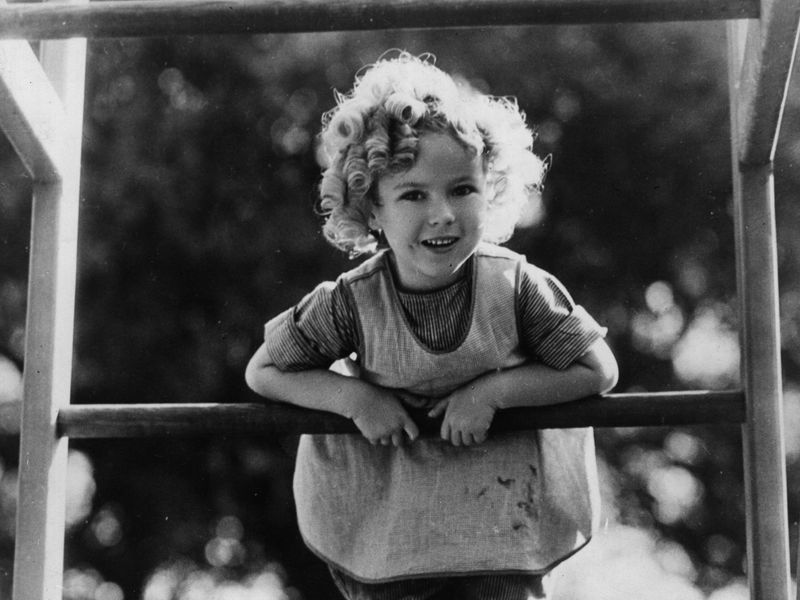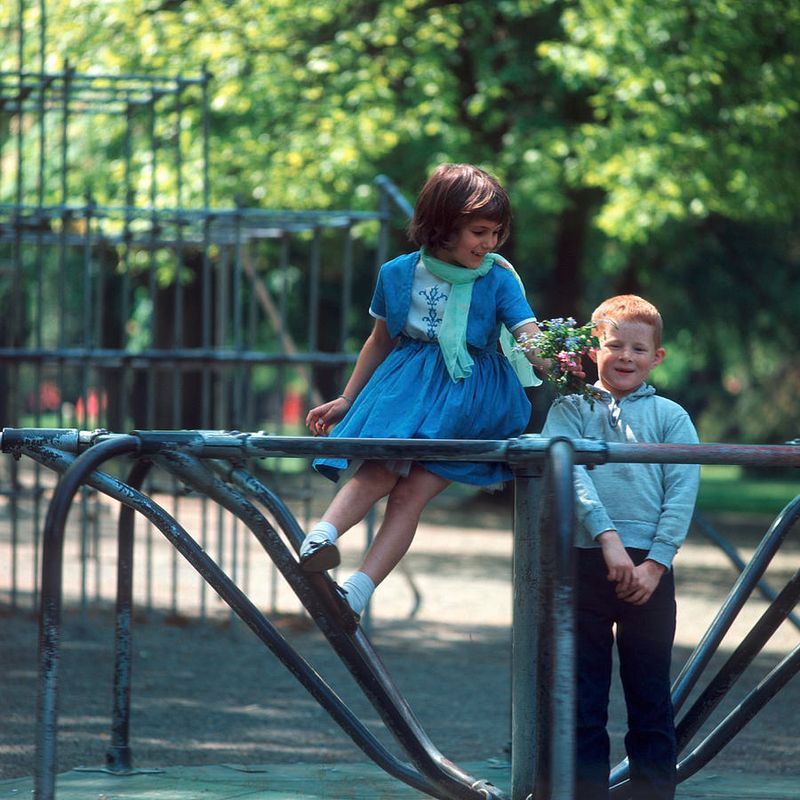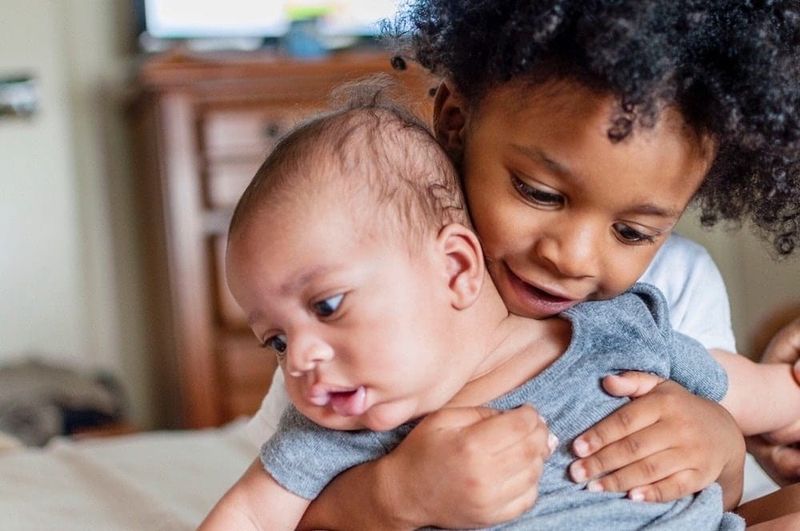16 Outdated Parenting Rules That Would Spark Outrage Today
Explore how societal shifts have made many once-accepted parenting rules seem outdated and even outrageous by today’s standards. This listicle delves into 16 such rules, blending humor and insight to highlight the evolution of parenting norms over time.
1. Children should be seen and not heard

Imagine a world where children were expected to stay silent, their voices considered mere background noise to adult conversation. This rule dictated that kids should be almost invisible, often leading to stifled creativity and unexpressed emotions. In today’s world, where fostering open communication is crucial, such an expectation seems not only impractical but also detrimental to a child’s development.
Child psychologists now emphasize the importance of letting children express themselves. Encouraging dialogue helps in building confidence and self-esteem. The antiquated notion that children should be silent participants in family life has thankfully faded, replaced by a more inclusive and nurturing approach.
2. Spanking as the primary form of discipline

The spanking rule once dominated as the go-to disciplinary method. Parents wielded it as a quick fix for misbehavior, believing it would instill respect and obedience. However, research now shows that corporal punishment can lead to long-term psychological harm, increasing aggression rather than curbing it.
Modern parenting emphasizes empathy and understanding, with time-outs and constructive conversations taking center stage. The shift away from physical punishment reflects a broader societal move towards non-violent conflict resolution. What was once a norm now seems like an outdated and harsh approach, sparking debates among generations.
3. Forcing kids to finish every bite on their plate

“Clean your plate!” was once a ubiquitous command, rooted in post-war scarcity fears. Parents, driven by concerns of wastefulness, insisted on empty plates at every meal. This rule often ignored a child’s natural hunger cues, leading to unhealthy eating habits and potential weight issues.
Today, parents are more likely to encourage mindful eating, teaching kids to listen to their bodies. The focus has shifted from quantity to quality, with an emphasis on balanced nutrition rather than finishing every morsel. The evolution of this rule highlights a growing awareness of health and well-being, moving away from guilt-driven mealtime mandates.
4. Boys don’t cry, and girls don’t get dirty

Gender stereotypes once dictated that boys should be stoic and girls pristine. “Boys don’t cry, and girls don’t get dirty,” was a mantra that suppressed genuine emotions and activities. This traditional view restricted self-expression and experimentation, reinforcing limiting gender roles.
Nowadays, emotional intelligence is encouraged for all genders, and girls are as free to get messy as boys. Embracing diverse expressions and interests has become a hallmark of contemporary parenting. By breaking free of these outdated stereotypes, children are now allowed to explore their identities without the constraints of age-old expectations.
5. Parents are always right—no exceptions

The “parents are always right” rule once served as an unquestionable doctrine. Children were expected to accept parental decisions without challenge, stifling independent thought. This authoritarian approach often led to resentment and hindered critical thinking.
Today, parenting involves mutual respect and understanding. Encouraging children to express their opinions and participate in decision-making processes fosters independent thinking and self-confidence. The shift from authoritarianism to collaboration reflects a broader cultural evolution towards valuing each family member’s voice, highlighting the importance of dialogue over dictation.
6. Privacy is a privilege, not a right

Once, a child’s privacy was seen as a privilege granted by parents, not a right. This belief led to invasive behaviors, with parents feeling entitled to search rooms and diaries, often sparking feelings of mistrust and rebellion.
Today’s parenting values trust and respect for personal space, acknowledging children’s rights to privacy as crucial for healthy development. Encouraging open communication while respecting boundaries helps build trust and strengthens family bonds. This cultural shift towards recognizing privacy rights marks a significant departure from the intrusive practices of the past.
7. Kids should greet all adults with hugs or kisses

In the past, it was customary for children to greet adults with hugs and kisses, regardless of their comfort level. This expectation often disregarded personal boundaries, teaching kids to prioritize politeness over personal feelings.
Contemporary parenting champions the importance of consent and personal space. Children are now taught to express greetings in ways that they feel comfortable, fostering respect for personal boundaries. This shift away from obligatory physical affection reflects a growing understanding of autonomy and consent, emphasizing the importance of respecting individual preferences from a young age.
8. Expressing emotions equals weakness

The notion that expressing emotions equates to weakness was a widely-held belief, particularly for boys. This rule encouraged emotional suppression, leading to potential mental health struggles and a lack of emotional intelligence.
Modern parenting and education prioritize emotional awareness and expression, recognizing them as strengths rather than weaknesses. Encouraging children to articulate their feelings helps develop empathy and resilience. The evolution of this rule underscores a cultural shift towards valuing emotional health and intelligence, moving away from outdated ideals of stoicism.
9. Talking back is never acceptable, even respectfully

In an era where respect was synonymous with silence, children were taught that talking back was never acceptable. This rule stifled healthy, respectful conversations, equating disagreement with disrespect.
Today, respectful dialogue between parents and children is encouraged. Allowing children to express differing opinions fosters critical thinking and mutual respect. The transition from silent compliance to open dialogue reflects a broader understanding of communication’s role in healthy relationships, highlighting the importance of listening and responding thoughtfully.
10. Homework and chores come before any fun

The rule that homework and chores must precede any fun once emphasized discipline over enjoyment. This rigid hierarchy often left little room for relaxation, creativity, and play, which are crucial for well-rounded development.
Today, a balanced approach is advocated, recognizing the value of leisure and play in fostering creativity and reducing stress. Parents are encouraged to create schedules that allow for both responsibilities and recreational activities. This evolution reflects an understanding of the holistic needs of children, promoting a healthier balance between work and play.
11. Birthdays don’t need to be celebrated big

Once, birthdays were modest affairs, celebrated with simple cakes and small gatherings. The focus was on gratitude and simplicity, often at the expense of excitement and joy.
Today, birthdays are seen as opportunities for creativity and joy, with celebrations tailored to individual preferences and interests. This shift reflects a broader cultural embrace of personal expression and celebration. While simplicity still holds value, the emphasis on making children feel special on their big day showcases an evolved understanding of celebration and value in unique experiences.
12. School grades determine your entire future

The belief that school grades alone determined one’s future success created immense pressure on children. This narrow focus on academic achievement often overshadowed talents and skills outside traditional education.
Contemporary views recognize diverse paths to success, valuing creativity, emotional intelligence, and practical skills. The shift from grade-centric to a more holistic approach in education and parenting highlights a better understanding of individual strengths and potential. Encouraging children to pursue varied interests and talents represents a significant cultural evolution in defining success.
13. Fear-based discipline builds strong character

Fear-based discipline once dominated, with parents using stern lectures and intimidating tactics, believing it would instill strong character. This approach often led to anxiety and fear, rather than resilience and strength.
Today, positive reinforcement and understanding are key in character-building. Fostering a supportive environment where children feel safe to make mistakes encourages growth and learning. The move away from fear-based methods reflects a broader understanding of positive psychological development, focusing on nurturing rather than intimidating.
14. Older siblings must always give in to younger ones

Older siblings were once expected to yield to younger ones without question, fostering feelings of unfairness and frustration. This rule often placed undue responsibility on older children, limiting their autonomy and sense of fairness.
Modern parenting encourages fairness and equality among siblings, recognizing each child’s individual needs and rights. By fostering cooperation and understanding, families can nurture harmonious relationships. The shift away from automatic deference highlights the importance of balanced dynamics within families, promoting mutual respect and individual development.
15. College is the only path to success

The notion that college was the sole path to success once dictated educational and career choices, disregarding alternative routes. This belief often led to pressure and stress, overshadowing personal interests and vocational talents.
Today, diverse paths to success are celebrated, including vocational training, entrepreneurship, and self-directed learning. Recognizing varied talents and career paths reflects an evolved understanding of success and fulfillment. Encouraging children to explore different avenues marks a significant cultural shift towards valuing personal growth and happiness over conformity.
16. Children should never question family traditions

Family traditions once stood unchallenged, with children expected to follow without question. This rule often stifled curiosity and discouraged cultural evolution, maintaining practices that may no longer resonate.
Today, questioning and evolving traditions are encouraged, allowing families to adapt and grow. Embracing change and cultural exchange fosters inclusivity and understanding. The shift from unquestioning adherence to open dialogue about traditions reflects a broader societal move towards adaptability and acceptance, valuing diverse perspectives and evolving cultural practices.







